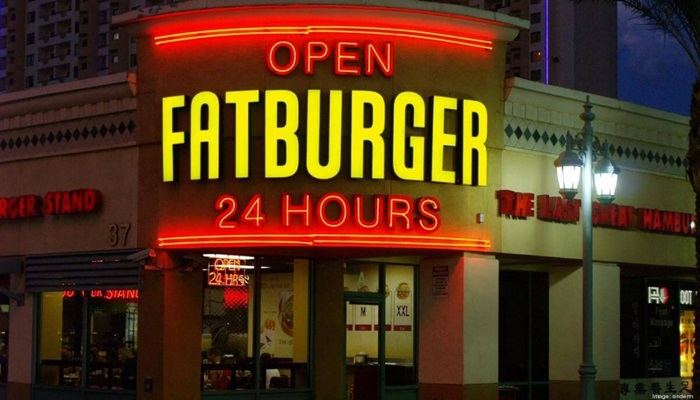Fatburger is a well-known fast-casual restaurant chain that specializes in gourmet burgers. Founded in 1952 in Los Angeles, California, Fatburger has grown into a beloved brand, recognized for its high-quality ingredients and customizable menu.
The restaurant is often referred to as “The Last Great Hamburger Stand,” emphasizing its commitment to serving delicious, made-to-order burgers. With a legacy of over 70 years, Fatburger has garnered a loyal customer base, including celebrities and athletes.
Fat Burger Brand Introduction
The original Fatburger was established by Lovie Yancey, who started with a small three-stool hamburger stand. Her vision was to create a place where customers could enjoy big, juicy burgers customized to their liking. Over the years, the brand has expanded significantly, now boasting over 200 locations across the United States and internationally.
Fatburger’s menu features classic American fare, including:
Burgers: The Original Fatburger comes with a choice of toppings like lettuce, tomato, onion, mayo, mustard, pickles, and relish.
Sides: Customers can enjoy hand-cut fries and onion rings made from fresh ingredients.
Milkshakes: Made from real ice cream, these shakes add a sweet touch to the meal.
The ambiance of Fatburger restaurants is designed to be vibrant and welcoming, often featuring contemporary decor that enhances the dining experience.
SEE ALSO: Mr. Sub Franchise
Fat Burger Franchise Cost
Starting a Fatburger franchise requires a significant financial investment. The costs can vary based on location and other factors.
Here’s a breakdown of the financial requirements:
Franchise Fee: $50,000
Total Initial Investment: This ranges from approximately $508,600 to $1,694,900. This figure includes costs for equipment, signage, initial inventory, and other startup expenses.
Royalty Fee: Franchisees are required to pay a royalty fee of 6% of gross sales.
Marketing Fee: An additional marketing fee of 3% is also required.
To qualify for a franchise, candidates must have:
Net Worth Requirement: A minimum net worth of $1,500,000.
Liquid Assets: At least $500,000 in liquid assets.
These financial prerequisites ensure that franchisees have the necessary resources to successfully operate their business.
Fat Burger Franchise Conditions
Becoming a Fatburger franchisee comes with specific conditions that must be met:
Operational Commitment: Franchisees are expected to be actively involved in the day-to-day operations of their restaurant. Absentee ownership is not permitted.
Training Requirements: While prior restaurant experience is beneficial, it is not mandatory. Fatburger provides extensive training programs to help new franchisees understand operational standards and best practices.
Location Approval: Franchisees must work with Fatburger’s corporate team to select an appropriate location for their restaurant. Factors such as foot traffic and local competition are considered during this process.
Compliance with Brand Standards: Adhering to Fatburger’s operational guidelines and maintaining quality control are crucial for franchise success.
Fat Burger Franchise Process
The process of opening a Fatburger franchise involves several steps:
Initial Inquiry: Interested candidates should fill out an inquiry form on the Fatburger website or contact the corporate office directly.
Application Submission: Candidates must submit a formal application that includes financial information and business experience.
Interview Process: After reviewing applications, selected candidates will be invited for an interview with the franchising team.
Approval and Training: Once approved, franchisees will undergo training that covers all aspects of running a Fatburger location.
Site Selection and Construction: Franchisees will work closely with corporate representatives to choose a suitable site and oversee construction.
Grand Opening: After completing training and construction, franchisees can plan their grand opening event with support from the corporate team.
The entire process can take between 12 to 18 months from application to opening day.
Fat Burger Franchise Profit
Profitability in the Fatburger franchise system can vary based on several factors:
Location Quality: The success of each franchise largely depends on its location. High-traffic areas tend to generate more sales.
Owner Involvement: Active participation in daily operations often leads to better management and increased profitability.
Operational Standards: Maintaining high standards in food quality and customer service can significantly impact sales figures.
According to recent reports, average net sales for selected Fatburger locations are around $1,216,850 annually. However, actual profits may differ based on individual circumstances such as lease agreements and local competition.
Conclusion
Owning a Fatburger franchise offers an exciting opportunity for entrepreneurs passionate about food service. With its rich history and commitment to quality burgers, Fatburger continues to attract customers across various markets. While the initial investment is substantial, the potential for profitability exists for those willing to engage actively in their business operations.
Related topics:
- Boston Pizza Franchise Costs, Profit & Requirements For 2024
- Chagee Franchise Costs, Profit & Requirements For 2024
- Dos Bros Franchise Costs, Profit & Requirements For 2024

